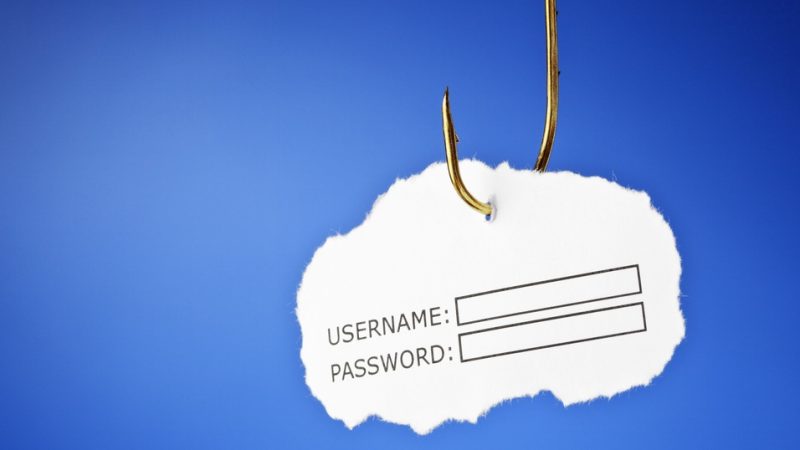Email phishing can be a problem for thousands of businesses every year, leading to downtime, other cyber security attacks and even expensive outsourcing to get rid of malware. Defending and protecting your business against all forms of cyberattack is vital, and phishing is one of the threats that often fly under the radar – causing a considerable amount of damage very quickly.
How can you protect your company against malicious attacks and chance malware? We cover everything you need to know, from what phishing is to how it can affect your business, through to how to stop it happening to you and your employees. Read on to find out more now:
What is phishing?
Phishing is a specific type of cyberattack that attempts to trick users into taking malicious actions. Often, these attacks are incredibly stealthy, and with phishing becoming more sophisticated each day, they can be tough to spot every time. Typically, the user will be provided with a link to click that directly downloads malware, or they will be directed to a website that results in the same action.

It can be easy to think you and your staff are too savvy to be caught out by a phishing scam. But the reality is that these hackers can masquerade as very legitimate businesses, or even as an employee within the company. A common scam is an email supposedly sent from the CEO of a business, or an email about a refund from a well-known brand like PayPal. Phishing emails might be in your inbox or spam filter right now, and you likely wouldn’t have a clue.
Why would my business be targeted for phishing?
If you’re a small or niche business, you may think that you’re less likely to be targeted by phishing. But this kind of malware tool is indiscriminate, and they will target companies and individuals of all shapes and sizes, with millions of emails sent every day. Many phishing emails are unsophisticated and quick to spot, whether it’s a request from a random, non-human-looking email address or a letter from a wealthy prince looking to share his cash.
While some, less sophisticated phishing campaigns are simply looking to extort money from as many people as possible, others may be more targeted to steal company data or information. Known as spear phishing, these are the higher-stakes forms of phishing and are often far more challenging to spot. Information relating to employees or the company may be used within the email to mimic legitimate communications, making these more persuasive emails difficult to pick out when you have a full inbox and hundreds of emails to get through a day.

How can I stop phishing?
Because phishing is constantly evolving and finding new ways to reach users, taking a multi-pronged approach is the ideal way to ensure your business is safe and your staff don’t find themselves victims of a phishing scam. Here’s what you can do to help prevent phishing from becoming a problem for your business:
Utilise anti-spoofing tools
The NSC recommends using an anti-spoofing control known as DMARC to prevent hackers from spoofing email addresses within your business. This ensures all emails from business addresses are genuine and not accessible by external users. It’s also a good boost for your business reputation, especially if you can recommend it to users in your contacts too.
Reduce available information
Spear phishing techniques involve using the readily available information about your business to make their emails sound convincing. Your digital footprint – website and social media – can be used for this purpose, so it’s important to limit what’s out there. Whaling is a type of phishing that targets high-level individuals in organisations, and reducing high profile information can reduce the effectiveness of these scams.
Utilise filters
Most email systems use spam filters already, but you may want to upgrade your systems to a bespoke offering if you’re having trouble with phishing emails. These filters can ensure phishing messages never reach your inbox, rendering them completely ineffective. You may also want to consider using a bespoke blocking service that’s more finely tuned than the inbuilt email client option.
Provide identification training
If your staff aren’t knowledgeable and vigilant of the risks of phishing, they’re far more likely to fall for the scam – leading to potentially expensive costs and severe malware issues. Part of your job is providing training and awareness. That means offering documentation of how to spot phishing emails and ensuring everyone knows in-house processes—especially surrounding financial roles and transactions.
Make it easy to report or check phishing
If you provide your employees with a fast and easy way to confirm emails, as well as to report phishing attempts, they’re more likely to do so. Through training, users will be able to spot phishing attempts more easily. You may also want to encourage your staff to verify actions through another medium, such as in-person or over the phone if they’re concerned about the legitimacy of an email.
Update your security measures
Keeping your business safe from malware, including phishing, requires up-to-date technology. From ensuring browsers are updated to investing in professional anti-malware software or outsourced IT security, you can ensure that your business is protected even if a link is clicked or a file downloaded. All devices, from PCs to smartphones to tablets, should have that same standard of protection.
Have immediate responses in place
If an incident does occur because of a successful phishing attempt, an immediate response is the best defence you have. That means having a disaster plan in place, as well as having a security logging system to spot malware the second it appears. Outsourced IT services can also help here, as they will have the specialist knowledge to perform the necessary steps quickly and professionally.
What else can I do to protect my business?
The steps above are a great start to protecting your business, but there are always ways to improve. Consider looking at your security systems as a whole to find any gaps that need filling, and examine your current processes to see if they leave you at risk of malware or scams. Being informed is the best place to start, and with that knowledge protecting your business from phishing emails is a far easier task.
.png?width=200&height=75&name=Amvia%20New%20Header%20Logo%20(11).png)


.png)